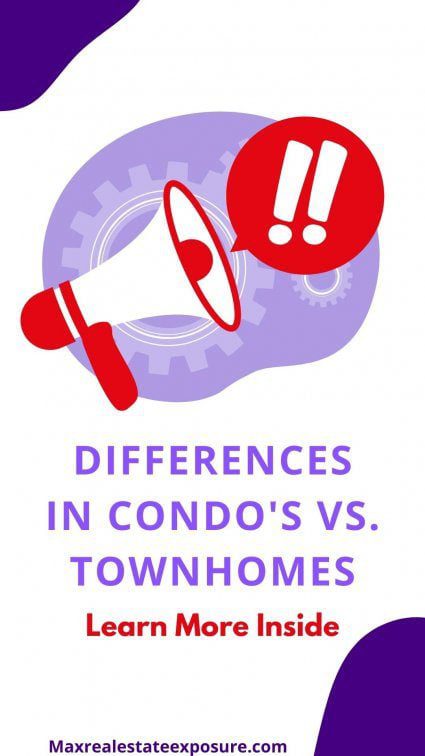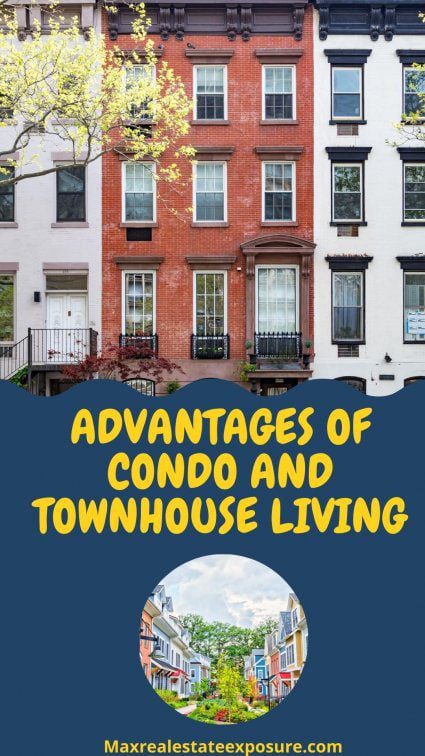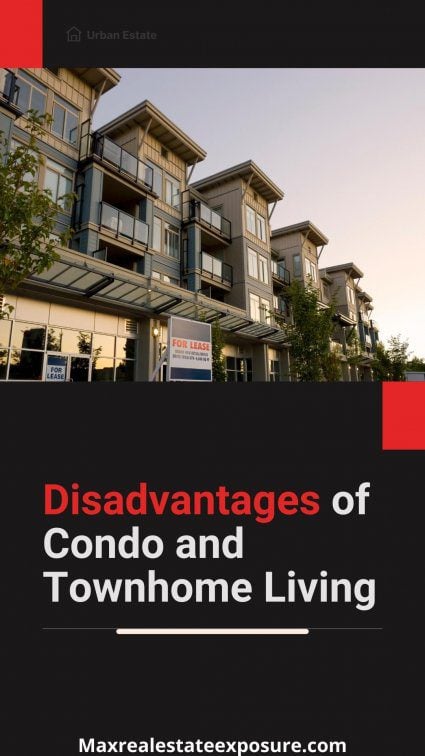Comparing a Townhouse to a Condominium
 Do you know the difference between a condo and a townhouse? If you are shaking your head, no, you’re not alone.
Do you know the difference between a condo and a townhouse? If you are shaking your head, no, you’re not alone.
Working as a real estate agent for thirty-seven years, many clients have asked how a townhouse differs from a condo.
The condo vs. townhouse topic is confusing, even for some real estate agents who don’t know the key differences. While these property types hold some similarities, there are also significant distinctions.
Choosing between a townhouse and a condo can be difficult when deciding what type of home you want to live in.
There are variations between townhouses and condos, and the one you choose will depend on what you need from a home.
Let’s take a comprehensive look at what you need to consider when choosing a condominium or townhouse before you put up your escrow funds.
The Main Differences Between a Condo and a Townhouse
The significant divergence between the two types of homes is ownership and responsibility.
We’ll look closer at the similarities and polarity between these housing choices.
What is a Townhouse?
A townhouse, sometimes known as a townhome, is a property that shares one or more walls with the neighbors. These are single-family homes frequently constructed in rows of identical houses. They are sometimes referred to as row houses when aligned in this fashion.
Owners of these types of homes are responsible for the yard, interior, exterior walls, and roof. With a townhouse, you own the land that the townhouse resides on, whereas, in a condo, you do not.
If the home is part of a development, the cost involved with maintenance is likely to be set out by the homeowners association. Townhouses can be found in urban areas but are more concentrated in suburban areas with more outdoor space.
Potential buyers are likelier to find a more oversized backyard in townhouse communities.
How is a Condo Different?
Condos usually are single units owned by residents that make up a more extensive development. They will share walls with neighboring units, but owners only have to worry about inside the interior walls.
The owners of the individual units don’t own the building, and the condominium association will manage any exterior or common areas. A condo association is established, and the owners must pay condo fees.
The monthly payment can vary depending on the perks offered within the community, such as fitness centers, a swimming pool, and tennis courts.
A condo can be similar to an apartment when multiple condo units are found in condo buildings, much like you would find various apartments in apartment buildings.
With a condo, you own an interest in the entire neighborhood. Essentially, you have ownership of the air space inside your condominium unit and a fractional interest in the development’s common areas.
Homeowner Responsibilities Are Different in Condos vs. Townhouses
 The main difference in comparing a condo vs. a townhouse will be what you must do. Living in these homes gives owners different levels of responsibility for the property.
The main difference in comparing a condo vs. a townhouse will be what you must do. Living in these homes gives owners different levels of responsibility for the property.
Townhouse Responsibilities
Owning a townhouse means you are responsible for the exterior of the home and any land that comes with it. The HOA will still take responsibility for any communal area.
The communal areas in townhouse developments are usually smaller than in condominiums. Having reduced common areas means lower HOA charges but more responsibility for the owner.
Townhouse owners will find their experience of maintenance costs to be closer to single-family homes.
A townhome owner will be required to take care of lawn maintenance and snow removal, much like would be the case with single-family residences.
While it might seem like all this offers you more freedom as a homeowner, it isn’t necessarily the case. The HOA will still have rules that you need to follow that will govern the exterior decoration of the home and probably a list of additional items as well.
So if you want to paint your home a different color, you may not be allowed to do so. Whether you are buying a townhome or condo, reviewing the rules and regulations is essential.
Recently, I marketed a new townhouse community in Mendon, Massachusetts, from start to finish. The builder intentionally kept the rules to a minimum for the new homeowners to establish their desires.
Condominium Responsibilities vs. Townhouses
You have less to worry about when you own a condominium. There are more conditions and restrictions that you need to follow, however. You share much more in a condo development than in a townhome community.
The HOA will have more to do with maintenance and regulating the larger communal areas. It also means that you are not directly responsible for the costs involved with care or decision-making. It could mean that if something needs to be done, it might take longer to be organized and might not even happen as the community’s needs must be considered.
For example, the homeowner association could decide that the decks need replacement. When you are part of a community with numerous units, you may find that your building is farther down the completion list.
In a condo community, you can often find yourself waiting for things to get done that take longer than you would like.
Both townhouses and condos are a type of property where you need to ask many questions before making your purchase. Finding out whether there will be higher HOA fees or a special assessment can be critical.
It will be advisable to look at meeting minutes to see any critical changes to HOA rules or essential differences that could impact your purchase decision.
Follow these tips for buying a condo to ensure you don’t make a decision you’ll later regret.
Differences in Condo vs. Townhouse Architectural Style
When comparing the architecture of a townhouse vs. a condo, condominiums usually are part of more significant buildings that can look like apartment complexes. The unit’s exterior often does not have many distinguishing characteristics from a condominium.
Condos will share at least one wall and, in some cases, multiple walls.
You’re likely to have neighbors above and below you with condo ownership. Condos and apartments usually are very hard to distinguish visually from the exterior. You really can think of a condo as an apartment you own.
Townhomes architecturally will look more like single-family homes. There will be two stories most of the time, but it is possible to have a one-story, typically a villa or ranch style. You will often see this styling in retirement communities where single-floor living is preferred.
Townhomes, like traditional homes, often have various architectural differences that make their outward appearance unique.
Differences In Homeowners Insurance in a Condo vs. Townhouse
The homeowner association will have insurance to cover the communal areas. A condo unit owner will need condo insurance for their belongings, much like you would have when renting an apartment. Having insurance is vital whether you are purchasing a condo or a townhouse.
With a townhouse neighborhood, the owner will need a home insurance policy, or if the HOA provides insurance for the homes, a renters policy will be required for your belongings.
The Advantages of Living in Shared Developments
 Condos and townhouses often provide better value for money for the homebuyer. They can be cheaper to purchase in the first place, with lower monthly payments even when you add HOA fees.
Condos and townhouses often provide better value for money for the homebuyer. They can be cheaper to purchase in the first place, with lower monthly payments even when you add HOA fees.
The affordability offered can often be a better option for families and first-time buyers, which is why more people are considering purchasing these properties.
Homes in these types of communities can also hold their value well. When you come to resell such a property, if the community is well-managed and staying on top of maintenance issues, the home should be easier to sell.
Community Living
Living in these sorts of communities can involve more socializing with your neighbors. Thanks to the communal areas, you are more likely to know your neighbors well.
Sharing common areas can make living in your home a better experience, with friendly neighbors to call on if you need them.
It can also increase the security of your home. Not only thanks to knowing your neighbors better, but many developments often include security measures in their design and ongoing budgets.
Living in both condos and townhomes is an excellent choice for those who prefer having a sense of a tight nit community.
Property Taxes Are Lower vs. Single-Family Homes
Generally, your property taxes will be lower with townhomes and condos than with a traditional home. These residential units offer far fewer customizations, keeping the costs down.
Lower costs lead to lower assessed values, which influences your property tax. Due to the uniformity associated with the units, owners of condos or townhouses are usually far less likely to challenge a high property tax bill.
The Disadvantages of Owning a Condo or Townhouse
There are risks involved with any house purchase and some issues with these types of homes.
Let’s take a look. These crucial differences could impact your buying decision.
HOA Fees
 You are going to have to spend money each month on HOA fees. These monthly expenses will be more in condo developments than in townhouses.
You are going to have to spend money each month on HOA fees. These monthly expenses will be more in condo developments than in townhouses.
Condos might be less expensive to purchase initially, but the HOA fees will reduce the difference the longer you pay the monthly fees.
You can also be responsible for paying your part in more significant works on the complex.
Unlike a single-family house, if substantial repairs are required, you must pay a percentage of the costs, whether you like it or not. This is regardless of whether you are directly affected by the maintenance issue.
Your Privacy
If you value your privacy, the community lifestyle might not be for you. Since you will be living closer to your neighbors than in traditional single-family homes, you can hear your neighbors more. In condos, you could have people above and below you as well.
The communal aspect of living in such a development might not be for everyone either, with shared areas that put you in regular contact with your neighbors.
Home Values
Occasionally, newer developments might be sold at lower initial prices than you originally paid. This happens so that the new project attracts buyers and will hit your resale value for some time.
A detached home is usually much more unique and can have greater customization to improve market value.
Traditional houses still offer a more significant investment return than townhouses and condos in most areas.
Home appraisals have less variation when models in the neighborhood are the same footprint or square footage. The only distinguishing characteristic will be interior amenities.
Financing Can Sometimes Be Challenging With Condos and Townhouses
Financing is slightly different when buying a condo or townhouse compared to a single-family home. Lending institutions are not only approving a borrower but the development as well.
For example, lenders will assess their risk or lending based on things such as the amount of money in the reserve funds, potential special assessments, and other issues related to the project’s financial health.
There are times when financing both a condo and a townhouse can be more challenging than a single-family home. Many lenders require that only a certain percentage of the units can be rented in a given townhouse or condominium community.
With these types of dwellings, investors could rent many units, which banks don’t like to see as they can impact long-term values. Key differences such as these should be thoroughly researched. The quoted interest rate may be slightly higher than with a single-family if you’re not putting in a twenty percent down payment.
You may find that the condo or townhouse community cannot be financed using an FHA loan. Condos and townhomes need FHA approval. See the reference for the approval requirements with FHA loans.
Rules You May Not Like With Condos and Townhouses
Both townhouses and condominiums can come with rules you may not like. For example, if you have pets, you may not be able to have them. In some communities, the type of pet may be restricted, or there could be a weight requirement.
For example, you might also find some overbearing regulations limiting your ability to plant flowers in your yard. Have a look at some of the most commonplace rules.
Looking over the restrictive covenants will be essential to ensure you can live with the requirements.
Review The Condo or Townhome Docs
One of the real estate contingencies in your contract should be the satisfactory review of all condo or townhome association documentation and financials. The docs should be carefully studied to make sure there are authoritarian rules and regulations.
It will also be vital to ensure that the project is financially sound and up to speed with its obligations. A buyer’s agent should add appropriate contingency language to protect you.
When financing through a lender, they will conduct a property title search. The title search will be run like a home purchase to ensure no encumbrances.
Without a clean title, lenders will not provide financing.
The Decision to Buy a Condo or Townhouse
Many aspects of living in these shared communities are the same, and the differences are relatively slight compared to other home types. You must understand what you want from your living conditions and which type best meets your needs.
In a community living arrangement, you have the opportunity to help in the success of the complex. You could serve on the HOA board or become a vocal community member, pushing for development improvements.
Even if you don’t get directly involved in running the HOA, you need to be aware of your obligations under the contract you’ve signed. If you stick to the rules, living in a shared community offers more benefits to some people.
If you don’t like the restrictions HOAs place on you, perhaps you would be better off looking at single-family homes.
Pros and Cons of a Condo vs. Townhouse
Let’s recap the advantages and disadvantages of each of these housing choices.
Pros of a Condo
- Lower maintenance costs
- More affordable
- Usually in excellent locations, often in more centralized areas
Cons of a Condo
- Paying fees for amenities, you may not use, such as a gym or swimming pool
- You may be restricted from doing things you would like to
- You’ll be much closer to your neighbors
Pros of a Townhouse
- More similar to a single-family home in design
- You are likely to have a yard
Cons of a Townhouse
- More maintenance than a condo
- Usually located a farther distance from central locations
Finding a Townhome or Condominium to Purchase
Besides finding an excellent buyer’s agent to work with, one of the best methods for an initial search for condos or townhouses is a Google search. Searching for townhouses near me or condos near me should provide a helpful start when you’re new to an area.
You can also try townhouses for sale near me or condos for sale near me as well. These search terms should provide you with some communities to check out. Laying the groundwork for what you can expect will be a valuable start to your property search.
Final Thoughts on Condo vs. Townhome
For some people, condos, and townhouses make a definitive purchase decision. For others, this may not be the case. If you do not like rules out of your control, condo or townhome living might not be for you.
Being the king of your castle might be the living condition you can’t live without. It is not uncommon for a buyer to purchase a townhouse or condo and discover they have made a mistake.
The first time a condo association tells you the flowers you’ve planted need to go, you’ll know exactly what I’m talking about. Always have a checklist to compare living in a traditional home vs. a condo before marking a final decision.
Hopefully, you now have a much better understanding of the differences between a townhouse and a condo.
About the author: Bill Gassett, a nationally recognized leader in his field, provided the above Real Estate information on a condo vs. townhouse. Bill can be reached via email at billgassett@remaxexec.com or by phone at 508-625-0191. Bill has helped people move in and out of Metrowest towns for 37+ years.
Are you thinking of selling your home? I am passionate about Real Estate and love sharing my marketing expertise!
I service Real Estate Sales in the following Metrowest MA towns: Ashland, Bellingham, Douglas, Framingham, Franklin, Grafton, Holliston, Hopkinton, Hopedale, Medway, Mendon, Milford, Millbury, Millville, Natick, Northborough, Northbridge, Shrewsbury, Southborough, Sutton, Wayland, Westborough, Whitinsville, Worcester, Upton, and Uxbridge MA.

